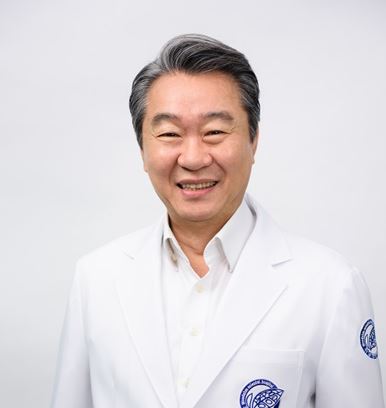| GREETING |
Dear Esteemed Members of the Korean Society for Damjeok Syndrome,
As the founding president of the Society, it is a great honor to share with you the academic achievements and future directions related to Damjeok Syndrome (痰積症候群). Gastrointestinal medicine has developed through continuous research and clinical challenges spanning both traditional and modern approaches, and we are now embracing a new paradigm with the identification of Damjeok Syndrome (痰積症候群). 
Traditional gastrointestinal medical approaches have primarily focused on diagnosing and treating mucosal pathologies such as inflammation or ulcers through endoscopy and pharmacological interventions, based on an understanding of anatomy and chemical digestion. Following the discovery of Helicobacter pylori, the pathological understanding expanded to include bacterial infection, and more recently, immunological and molecular biological approaches have extended this understanding further, emphasizing systemic interactions among the immune system, nervous system, and the gut microbiome [bThrain-gut axis].
Amid these various approaches, we have identified a new form of gastrointestinal disorder, Damjeok Syndrome (痰積症候群), which involves hardening of the stomach and intestinal tissues linked to damage in the submucosal layers. This syndrome explains the etiology of various gastrointestinal disorders and associated systemic symptoms that were previously considered functional or neurogenic, as they were not detectable through conventional diagnostic tests. In particular, as Korea is among the countries with the highest prevalence of gastrointestinal disorders, fundamental strategies for prevention and treatment of pathologies that may progress to gastrointestinal cancers are urgently needed. The discovery of Damjeok Syndrome (痰積症候群) provides a potential solution to these challenges and may also contribute to resolving numerous systemic disorders.
While elucidating the pathophysiology of Damjeok Syndrome (痰積症候群) was challenging, developing effective treatment methods proved even more difficult. Although the syndrome is based on the traditional Korean medical concept of Damjeok (痰積症候群), merely removing Food Stagnation (食積) or Phlegm-Dampness (痰飮) was insufficient. Without improving Massed Accumulation (積聚, palpable mass), relapses and treatment failures persisted. Ultimately, we succeeded in resolving these tissue masses by developing targeted Damjeok Syndrome (痰積症候群) prescriptions that address submucosal tissue damage, utilizing specialized microorganisms to deliver herbal medicine to the submucosal layers, and designing physical therapy devices to release hardened deposits. This novel therapeutic approach restores gastrointestinal motility, improves the function of digestive enzymes, gastric acid, hormones, nerves, and immune cells in the submucosal tissue, and notably, the removal of inflammatory factors such as Damjeok Syndrome (痰積症候群) facilitates blood and lymphatic purification, contributing to systemic homeostasis and metabolic efficiency, thereby alleviating systemic problems.
At Weedahm Korean Medicine Hospital, where clinical applications based on Damjeok Syndrome (痰積症候群) are actively pursued, the number of patients with refractory gastrointestinal disorders—who have suffered due to insufficient diagnosis and treatment in conventional medicine—is increasing, and remarkable clinical outcomes have been observed.
By systematizing the traditional concept of Damjeok (痰積症候群) within modern clinical practice, this advanced Korean medical approach provides hope for patients with severe pain and markedly reduced quality of life, and offers inspiration for the future development of Korean medicine to our colleagues. The Korean Society of Damjeok Medicine has made tangible progress in standardizing Damjeok Syndrome (痰積症候群), including establishing diagnostic criteria, grading severity, developing standardized questionnaires, analyzing treatment data to produce patient statistics and clinical case collections, and objectifying therapeutic outcomes.
We will continue to devote research and practical efforts to developing objective and standardized achievements in Damjeok Syndrome (痰積症候群), and use these foundations to promote successful global dissemination. We sincerely ask for the continued support, guidance, and encouragement of all society members.
Sincerely,
Seo-Hyung Choi
Founding President
The Korean Society for Damjeok Syndrome (KSDJS)
